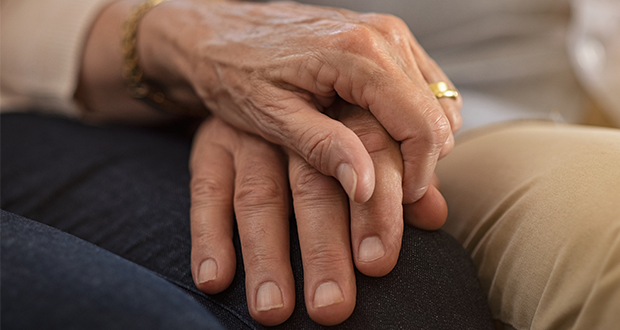New research suggests that residential aged care providers are compromising residents' ability to enjoy intimacy and express their sexuality.
La Trobe University's Australian Centre for Evidence-Based Aged Care (ACEBAC) surveyed almost 3,000 residential aged care facilities across Australia. It found that sex and intimacy amongst its residents are often supervised – or even controlled.
The survey was conducted by Professor Deirdre Fetherstonhaugh and Linda McAuliffe and aimed to identify what factors can influence staff's decision-making regarding a resident's intimate relationships and sexual expression.
"We presented staff with a case study of a fictionalised couple – Norm and Carol – who develop a close, mutually satisfying relationship while living in residential aged care," Ms McAuliffe said.
"Our findings showed that staff responses are diverse, depending on what information they have, and are likely influenced by personal values and morals rather than formal policies."
As Australia's population ages, the need for residential aged-care facilities grows. Ms McAuliffe emphasised the importance of respecting older people's right to intimacy and sexual expression in residential settings.
"There's a common myth that older people are asexual," Ms McAuliffe said.
"This can make older people living in residential aged care feel embarrassed about expressing their needs for intimacy."
The study revealed barriers that could hinder residents' ability to enjoy intimacy and sex, such as lack of privacy or ageist attitudes towards sexuality and ageing.
"Intimate relationships can have such a powerful positive influence on resident's wellbeing," Ms McAuliffe said.
"Our findings acknowledge that staff views are generally positive, but many staff are unclear about their professional responsibilities and need support."
According to Ms McAuliffe, providing people with information and resources will be a considerable step in normalising intimacy and sex within residential aged care. She also said keeping residents in mind when making changes was necessary.
"We need to start asking older people what they need – how can they best be supported?"
"There needs to be a comprehensive policy to guide staff in their practice and support healthy resident relationships," she said.
The study revealed that only half of the facilities had written policies on sexuality, only one in six had policies on sexual health, and one-third had policies on sexual behaviour.
Ms McAuliffe called for uniform and formal education to help staff. As reported in the survey, training on sex and intimacy was either minimal or non-existent.
Over 50 per cent of the staff never had any education or training, and the other half reported that the education content was largely inadequate.
"To help address this issue, ACEBAC is currently developing an online education module which we hope to be able to share with the sector in the coming months," Ms McAuiffe said.
"We need to normalise the need for intimacy as a fundamental part of being human and something that can bring comfort in what can be a very challenging time of life."
Do you have an idea for a story?Email [email protected]
 Aged Care Insite Australia's number one aged care news source
Aged Care Insite Australia's number one aged care news source

